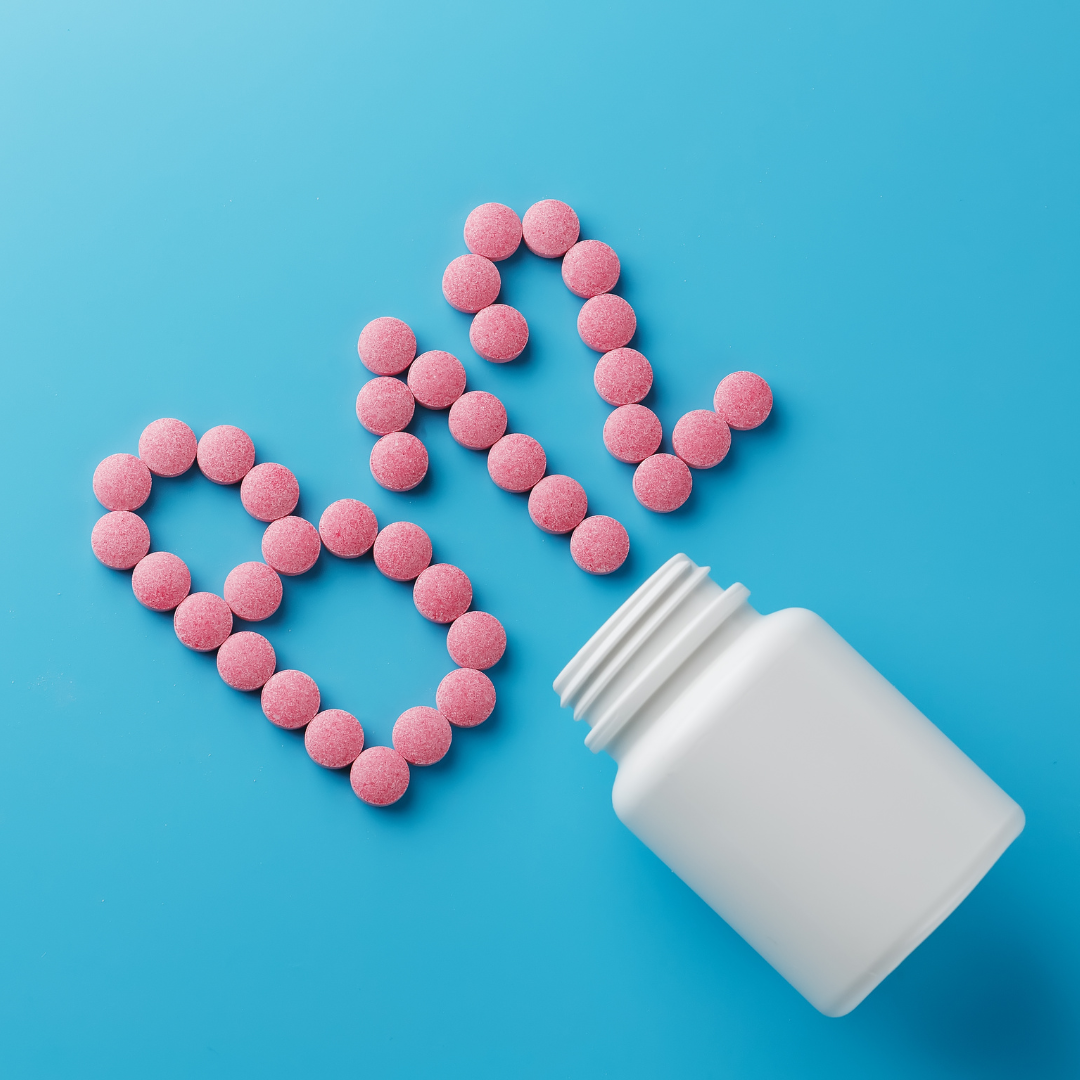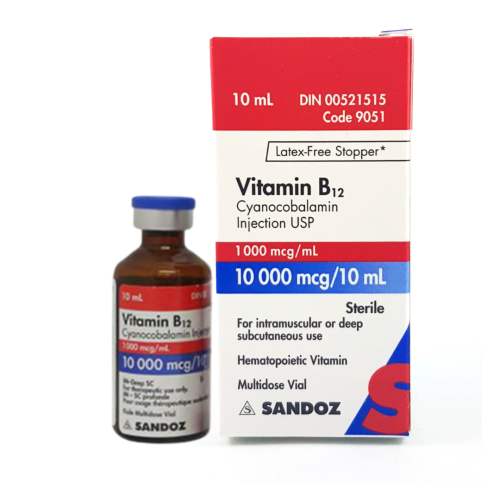
Vitamin B12 is a powerhouse nutrient, vital for everything from producing red blood cells to maintaining healthy nerve function and keeping your energy levels stable. When your levels are low, you might feel tired, weak, or experience neurological symptoms. Correcting a deficiency is crucial, but it brings up a common question: are oral supplements or injections the better choice?
Both methods can effectively raise your vitamin B12 levels, but they work differently. Understanding the distinctions in absorption, effectiveness, convenience, and cost is key to making an informed decision with your healthcare provider. This article will break down the differences between vitamin B12 injections and oral supplements to help you understand which option might be best for your specific needs.
What Is Vitamin B12 and Why Do You Need It?
Vitamin B12, also known as cobalamin, is an essential water-soluble vitamin. Your body can't produce it on its own, so you must get it from your diet or through supplementation. It is found naturally in animal-based foods like fish, meat, poultry, eggs, and dairy products.
This vitamin plays several critical roles in keeping your body running smoothly. It supports:
- Healthy Red Blood Cell Formation: B12 is necessary to create red blood cells, which carry oxygen throughout your body. A deficiency can lead to a type of anemia called megaloblastic anemia, causing fatigue and weakness.
- Normal Nerve Function: It helps maintain the myelin sheath, a protective covering around your nerves. Without enough B12, you can experience neurological issues like numbness, tingling, or balance problems.
- Energy Metabolism: B12 helps your body convert the food you eat into glucose, which provides you with energy.
A lack of sufficient vitamin B12 can lead to a range of health issues, from persistent fatigue to more severe neurological changes if left untreated.
Understanding Oral Vitamin B12 Supplements
Oral vitamin B12 supplements are the most common and accessible form of supplementation. You can find them easily over-the-counter in most pharmacies and grocery stores.
Forms Available
Oral B12 comes in several forms, including:
- Tablets
- Capsules
- Lozenges
- Sublingual drops (placed under the tongue)
Pros of Oral Supplements
- Widely Available: You don't need a prescription to purchase them.
- Convenient and Non-Invasive: Taking a pill or a drop is simple and painless.
- Effective for Many People: They work well for individuals with mild deficiencies or those who need to supplement their diet, such as vegans and vegetarians.
Cons of Oral Supplements
The main drawback of oral vitamin B12 supplements is their reliance on your digestive system for absorption. For B12 to be absorbed properly, it must bind with a protein called "intrinsic factor," which is produced in the stomach.
This makes oral supplements less effective for individuals with:
- Pernicious Anemia: An autoimmune condition where the body can't produce intrinsic factor.
- Gastrointestinal Conditions: Disorders like Crohn's disease, celiac disease, or atrophic gastritis can impair absorption.
- Previous Gastric Surgery: Procedures like gastric bypass can reduce the stomach's ability to produce intrinsic factor and absorb B12.
- Age-Related Changes: Older adults often produce less stomach acid, which can hinder B12 absorption from food.
Additionally, oral supplements require daily adherence to maintain consistent levels, which can be a challenge for some people.
A Closer Look at Vitamin B12 Injections
Vitamin B12 injections are a medical treatment prescribed and administered by a healthcare provider. They deliver a high dose of B12 directly into the muscle (intramuscularly) or under the skin (subcutaneously).
Forms Available
The most common forms used in injections are cyanocobalamin and hydroxocobalamin, which are synthetic and stable versions of the vitamin.
Pros of Injections
- Bypasses the Digestive System: Because the vitamin is injected directly into the bloodstream, it bypasses any absorption issues in the stomach or intestines. This guarantees 100% bioavailability.
- Highly Effective for Absorption Issues: Injections are the gold standard for people with pernicious anemia, severe digestive disorders, or a history of gastric surgery.
- Rapidly Restores Levels: In cases of significant vitamin B12 deficiency, injections can quickly bring levels back to normal, providing faster relief from symptoms.
- Less Frequent Dosing: Instead of a daily pill, injections are typically given on a weekly or monthly schedule as determined by a healthcare provider.
Cons of Injections
- Requires Medical Supervision: You need a prescription and a qualified professional to administer the shot.
- Potential Discomfort: Some people experience mild pain, redness, or swelling at the injection site.
- Higher Upfront Cost: While the cost per dose might be higher than oral supplements, the less frequent dosing schedule can sometimes balance out the expense over time.
Injections vs. Oral Supplements: A Side-by-Side Comparison
Feature |
Oral Supplements |
Vitamin B12 Injections |
|---|---|---|
|
Absorption |
Depends on digestive health and intrinsic factor. |
Direct absorption into the bloodstream. |
|
Best For |
Mild deficiency, dietary supplementation. |
Moderate to severe deficiency, absorption problems. |
|
Convenience |
Easy to take daily at home. |
Less frequent, but requires a healthcare visit. |
|
Onset of Action |
Gradual improvement over weeks. |
Faster response, often within days. |
|
Supervision |
Self-administered. |
Requires a prescription and healthcare provider. |
Which Option Is Right for You?
Choosing between oral supplements and injections depends entirely on your individual health status, the severity of your deficiency, and your ability to absorb the vitamin.
Oral supplements may be sufficient if:
- You have a mild deficiency detected in a blood test.
- You follow a vegan or vegetarian diet and need to supplement to meet your needs.
- You are generally healthy with no underlying digestive or absorption issues.
Injections are often the recommended treatment when:
- You have been diagnosed with pernicious anemia or another condition that impairs B12 absorption.
- Your deficiency is moderate to severe, causing significant symptoms like anemia or neurological problems.
- A healthcare provider determines that a faster response is medically necessary.
A Reliable Option for Injections
For patients who require ongoing injectable supplementation, the Sandoz Vitamin B12 Injectable Solution – 1000 mcg/10 mL offers a trusted and convenient choice. As a multi-dose vial, it can supply multiple injections, making it a practical option for a prescribed treatment plan. Manufactured by Sandoz, a global leader in pharmaceuticals, this cyanocobalamin formulation is a reliable standard in B12 therapy.
The Final Takeaway
Both oral vitamin B12 supplements and injections have their place in managing and preventing deficiency. While oral supplements are a convenient option for many, injections provide a reliable and effective solution for those with absorption issues or more severe deficiencies.
The most important step is to work with a qualified healthcare professional. They can perform a blood test to assess your B12 levels, identify the underlying cause of any deficiency, and recommend the most appropriate treatment for your health needs.
Please Note: Never start a new supplement or injection regimen without medical guidance.



